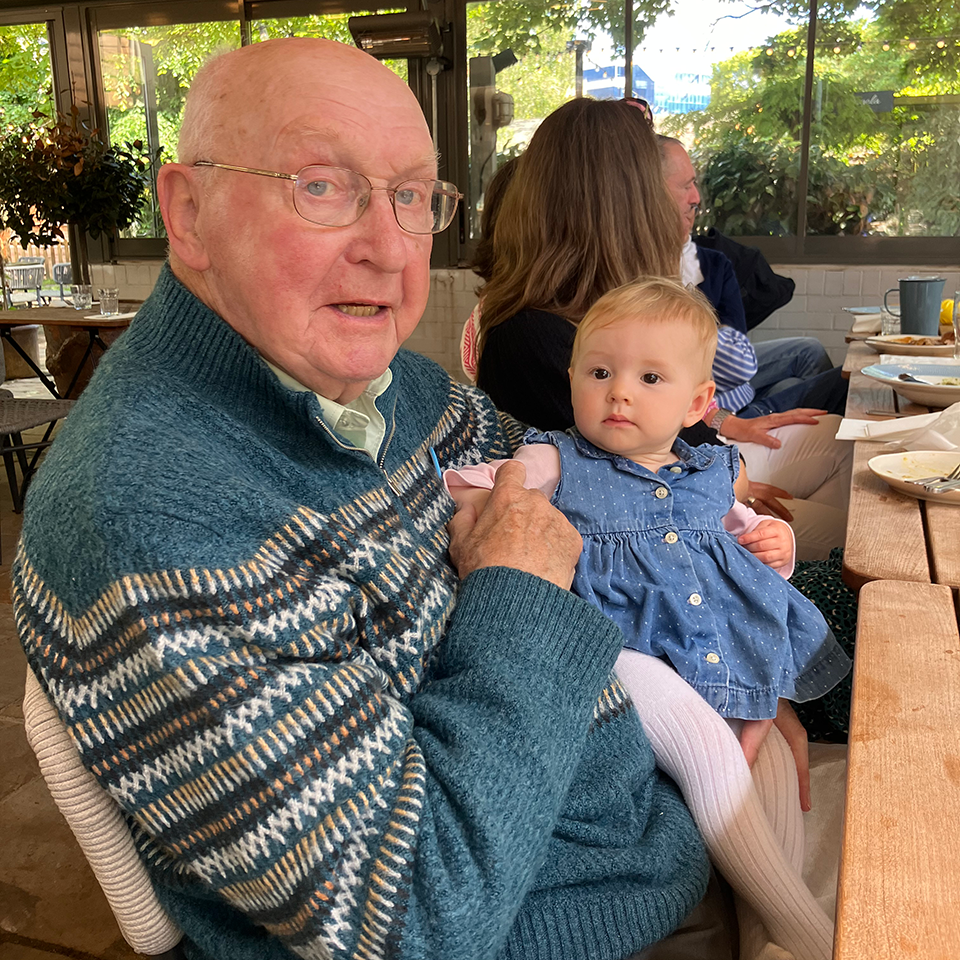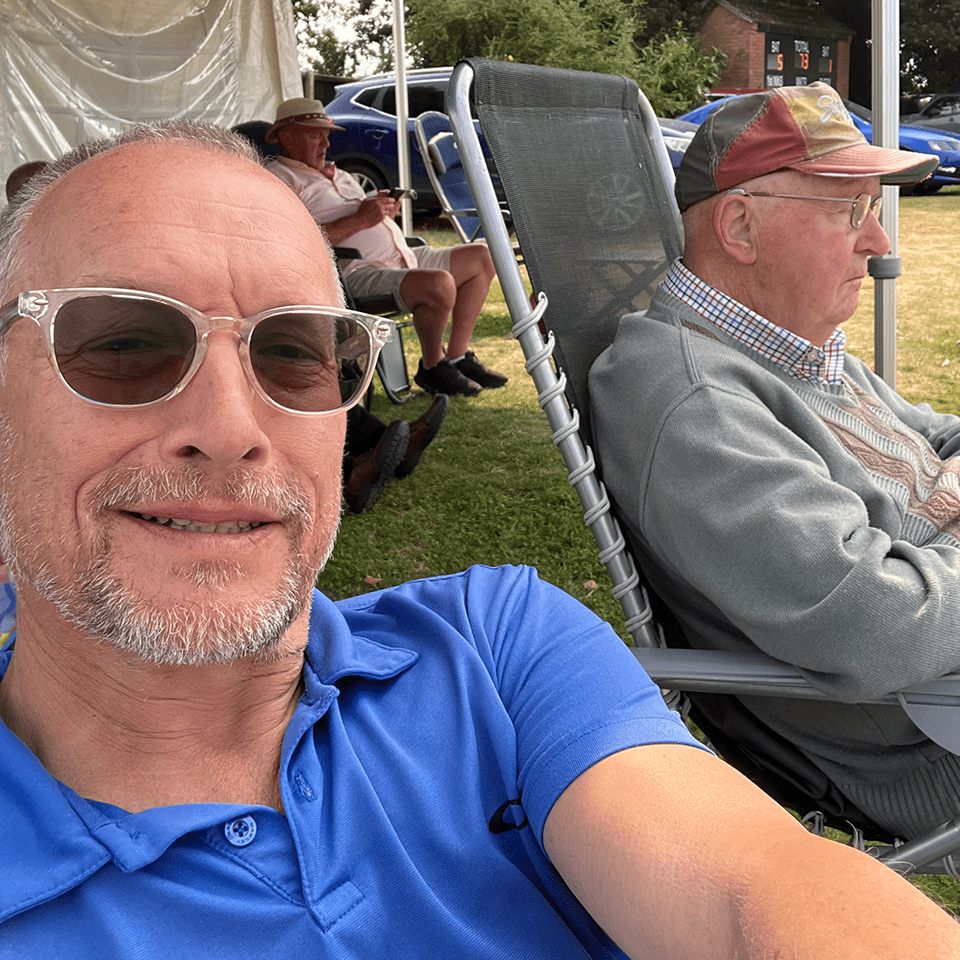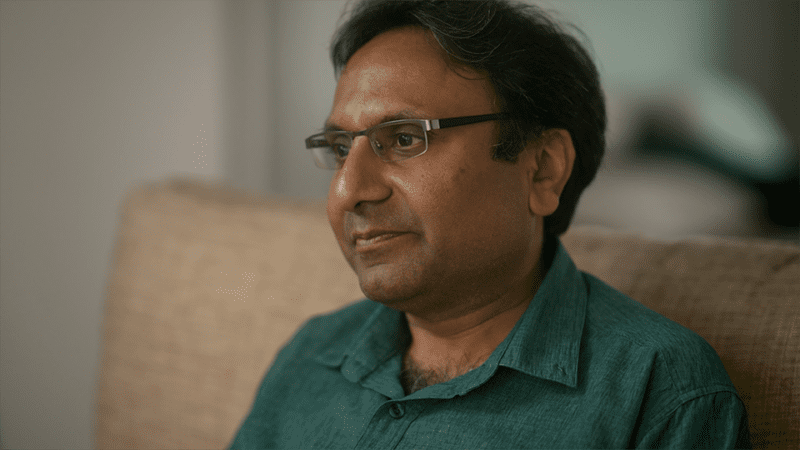Caring from a distance
Caring from a distance is when you support and help someone from afar, and it affects many.
Simon, who has lived in New Zealand for two decades, discusses how he cares for his dad who has Alzheimer’s disease and lives alone in the UK.

It was during the Christmas period in 2023 that alarm bells started to ring concerning my dad. He lives in Norwich, and I have lived in New Zealand for nearly 20 years. I have grown-up kids in the UK, who always spend Christmas Day with him. They noticed changes in Dad’s behaviour and cognition. It confirmed some worries that I was already having. On phone calls with Dad, I had started to notice that he would repeat things, forget details or become confused.
It became clear to me that I needed to be closer to Dad in order to support him. He’s not one to ask for help, but I couldn’t bear the thought of him struggling alone without proper provisions in place to keep him safe and comfortable. So in May this year, I made the long journey from New Zealand to the UK.
I didn’t know how long I’d stay for, but am fortunate that I have recently retired, so missing work wasn’t an issue. As I write this five months later, in November, I’m still here!
Dad is a fiercely independent man. Since Mum died in 2018, he has lived alone in Norwich, in the same house for nearly 50 years. Despite turning 90 this year, he is still remarkably active. Up until three years ago, he was still running 5km in the local ParkRun most Saturdays! He loves going to Wetherspoons for lunch, chatting to his neighbour who he’s lived alongside for around 30 years, and playing pitch and putt.
Shortly before I arrived, Dad was involved in a car accident, and after a check-up at the local A&E it was recommended that he have a memory test, as they thought this may have been linked to his accident. I arranged with his GP and his results prompted a referral to the memory clinic. After a full assessment, Dad was diagnosed with Alzheimer’s disease. It wasn’t a surprise to me. As for him, I don’t think it’s ever sunk in really.
Managing this phase of our relationship has been difficult as Dad definitely doesn’t like change and no longer understands the risks of living by himself. His motto has always been, “We can cope” – I’m not even sure who the ‘we’ is given he lives alone, but I’ve lost count of the number of times I’ve heard him use the phrase.
It was clear when I arrived in the UK that Dad was no longer coping. The house was a mess, his clothes were dirty, the garden was overgrown and he had bluffed his way through with his friends and neighbours. I discovered this was something he was very good at – rehearsing quick responses to questions that conceal his memory issues and confusion. He had also been doing this on our phone calls when I was in New Zealand. Like I said, fiercely independent.
Since then, I have been dealing with the local authorities, social services, occupational therapists, cleaners, gardeners, meals on wheels providers, Dad’s bank and private care companies. Carers come to the house for an hour each day, and I have also made some home adjustments for his safety, like removing the bathtub and installing a walk-in shower. Luckily, I have had time to do this and am not afraid to ‘push’ when necessary.

Putting everything in place has been a full-time job and very challenging in dealing with lots of different people and organisations, who typically move at their own pace. Most are only responsible for their specialty, so there have been lots of phone calls, visits and emails. It has been a struggle. There are definitely gaps in the system, and a lack of a hands-on approach, in my opinion.
During this process it has been quite difficult trying to explain to Dad what I’m doing and why I’m spending so long on the phone or my laptop. Initially, I tried to involve him in making decisions, but it soon became clear that he wasn’t understanding much at all. He also has not kept abreast of any technological changes over the last 30+ years, so has no idea about contacting people other than on his landline (which is also difficult because he also has hearing issues and forgets to wear his hearing aids!) or in face-to-face meetings.
I have lasting power of attorney, which means I can make decisions on his behalf. It has been in place for a number of years, but I haven’t needed until now.
As a New Zealand resident, I wasn’t aware of Dementia UK’s specialist Admiral Nurses until recently. I would’ve really appreciated having someone who understands dementia helping me navigate this journey instead of figuring it out all on my own.
It still feels strange to think of myself as Dad’s carer. I haven’t had to deal with anything like this before, and have needed the support of friends and family to reassure me that I am doing a good job. There isn’t a guidebook on caring for someone you love, let alone when you live in different countries.
I’m really not sure how Dad’s Alzheimer’s will affect him over the next few months and years, but we now have things in place to enable him to stay in his home safely, where he is at his happiest. I am sure the time will come when he has to move into a care home, and that’s a conversation that won’t be easy. But I will be there for him, whether it’s here or on the other side of the world.
Caring from a distance is when you support and help someone from afar, and it affects many.

Mahersh opens up on the struggles he and wife Nishma have faced in their attempts to secure CHC funding for his mother’s care.

Neil’s story reminds us that despite these tough times, Admiral Nurses have supported families with dementia throughout, helping them to reflect on the past, live in the present and plan for the future.